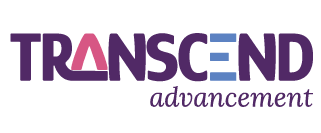Building Inclusive Advancement Teams
Tips for Recruiting and Retaining Diverse Talent
A diverse and inclusive advancement team isn’t just a nice-to-have—it’s a necessity for nonprofit success. Teams that reflect a variety of backgrounds, experiences, and perspectives are better equipped to engage diverse donor bases, craft compelling messaging, and drive impactful fundraising efforts.
Yet, many nonprofits struggle with hiring and retaining diverse talent in their advancement offices. Recruitment often leans on the same networks, while workplace culture may unintentionally exclude individuals from historically marginalized communities. So, how can nonprofits break this cycle and build truly inclusive teams?
Why Diversity in Advancement Matters
A strong advancement team needs to connect with donors, volunteers, and community members from all walks of life. When organizations prioritize diversity, they gain:
More Effective Donor Engagement – A team with diverse experiences can better understand the motivations and giving patterns of a broader donor base.
Stronger Storytelling & Marketing – Different perspectives lead to more inclusive messaging that resonates with various audiences.
Increased Innovation – Teams with diverse backgrounds bring new ideas and creative solutions to fundraising challenges.
Steps to Recruit a More Inclusive Advancement Team
1. Rework Your Job Descriptions
The language used in job descriptions can either invite or discourage diverse applicants. To make job postings more inclusive:
Avoid jargon or requirements that aren’t essential to the role (e.g., excessive years of experience).
Highlight your organization’s commitment to DEI.
Emphasize skills and lived experiences over traditional career paths.
2. Expand Your Recruitment Networks
If you’re only posting jobs on the same platforms, you’ll keep attracting the same candidates. Try:
Partnering with DEI-focused job boards and professional associations.
Engaging with historically Black colleges and universities (HBCUs), Hispanic-serving institutions (HSIs), and other diverse educational networks.
Tapping into affinity groups for professionals of color in the nonprofit sector.
3. Implement Structured Hiring Practices
Unconscious bias often influences hiring decisions. To mitigate this:
Use blind resume screening to focus on skills rather than names, schools, or addresses.
Standardize interview questions and evaluation criteria.
Have diverse hiring committees to provide multiple perspectives on candidates.
Retaining Diverse Talent: Creating an Inclusive Workplace
Hiring is just the first step. Retention requires an inclusive culture where employees feel valued, supported, and empowered.
1. Foster Mentorship & Professional Growth
Many professionals from underrepresented backgrounds face barriers to career advancement. Support their success by:
Providing mentorship opportunities with senior staff members.
Offering leadership training and career development programs.
Encouraging participation in DEI-focused conferences and networking events.
2. Ensure Pay Equity & Transparency
Salary disparities disproportionately affect women, people of color, and other marginalized groups. To build trust and equity:
Conduct regular pay audits to identify and correct wage gaps.
Establish clear, transparent salary bands for all roles.
Offer equitable benefits, including flexible work policies, paid family leave, and wellness support.
3. Build a Culture of Belonging
True inclusivity goes beyond hiring—it’s about making employees feel welcomed, respected, and empowered to bring their full selves to work. Strategies include:
Hosting regular DEI discussions and staff training.
Creating employee resource groups (ERGs) to support diverse team members.
Encouraging staff input on policies and practices that impact workplace culture.
Let’s Build Stronger, More Inclusive Advancement Teams
At TRANSCEND Advancement, we help nonprofits recruit, retain, and support diverse talent in their advancement teams. Whether you need guidance on inclusive hiring practices, DEI audits, or workplace culture strategies, we’re here to help. Let’s discuss how we can support your organization in building a more inclusive advancement team.
